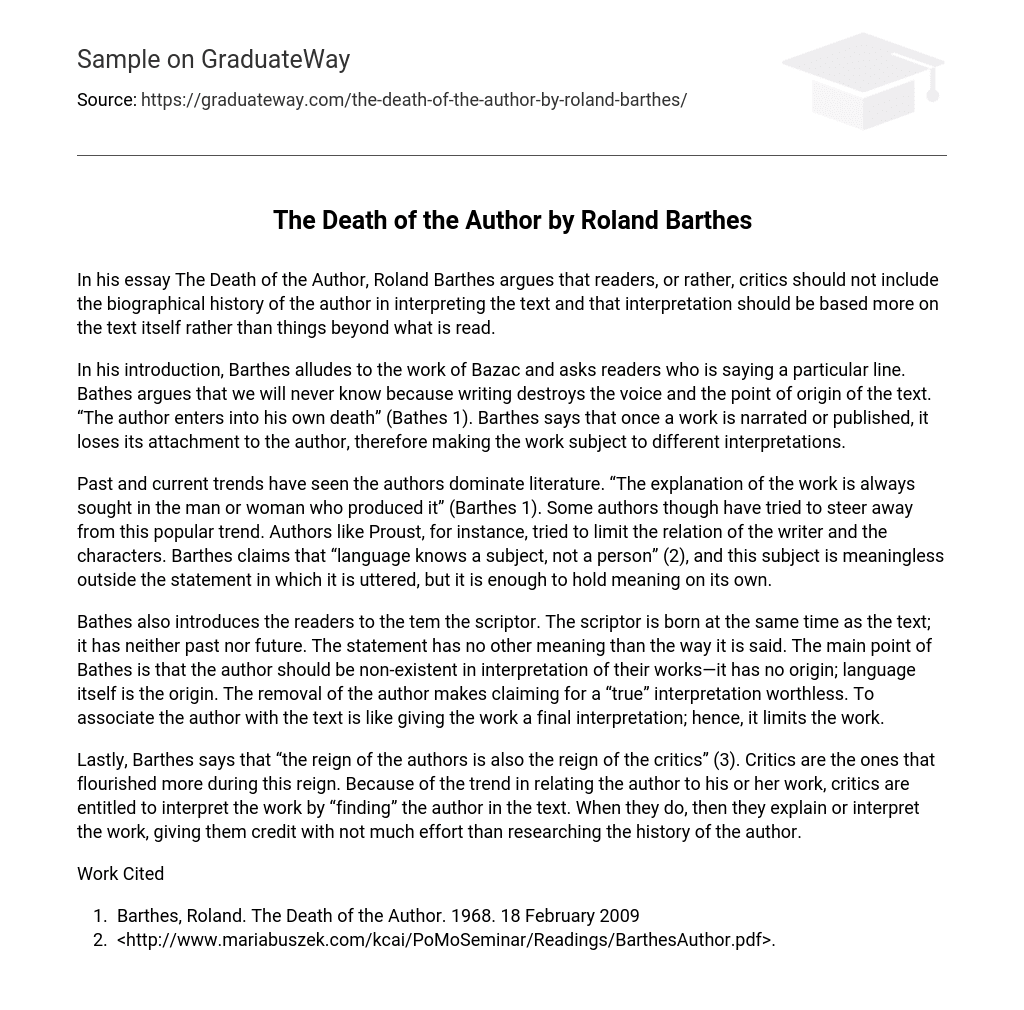In his essay The Death of the Author, Roland Barthes argues that readers, or rather, critics should not include the biographical history of the author in interpreting the text and that interpretation should be based more on the text itself rather than things beyond what is read.
In his introduction, Barthes alludes to the work of Bazac and asks readers who is saying a particular line. Bathes argues that we will never know because writing destroys the voice and the point of origin of the text. “The author enters into his own death” (Bathes 1). Barthes says that once a work is narrated or published, it loses its attachment to the author, therefore making the work subject to different interpretations.
Past and current trends have seen the authors dominate literature. “The explanation of the work is always sought in the man or woman who produced it” (Barthes 1). Some authors though have tried to steer away from this popular trend. Authors like Proust, for instance, tried to limit the relation of the writer and the characters. Barthes claims that “language knows a subject, not a person” (2), and this subject is meaningless outside the statement in which it is uttered, but it is enough to hold meaning on its own.
Bathes also introduces the readers to the tem the scriptor. The scriptor is born at the same time as the text; it has neither past nor future. The statement has no other meaning than the way it is said. The main point of Bathes is that the author should be non-existent in interpretation of their works—it has no origin; language itself is the origin. The removal of the author makes claiming for a “true” interpretation worthless. To associate the author with the text is like giving the work a final interpretation; hence, it limits the work.
Lastly, Barthes says that “the reign of the authors is also the reign of the critics” (3). Critics are the ones that flourished more during this reign. Because of the trend in relating the author to his or her work, critics are entitled to interpret the work by “finding” the author in the text. When they do, then they explain or interpret the work, giving them credit with not much effort than researching the history of the author.
Work Cited
- Barthes, Roland. The Death of the Author. 1968. 18 February 2009
- <http://www.mariabuszek.com/kcai/PoMoSeminar/Readings/BarthesAuthor.pdf>.





